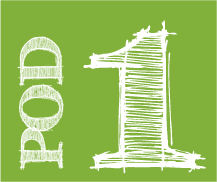 The first step on any research journey is to figure out what it is that we need to discover. Sometimes that’s harder than it should be, especially for tweens who may be unaccustomed to anything other than the imposed queries of classroom assignments. The activities in this pod are designed to help students brainstorm possible topics, and to understand the basics of the research process. Continue reading
The first step on any research journey is to figure out what it is that we need to discover. Sometimes that’s harder than it should be, especially for tweens who may be unaccustomed to anything other than the imposed queries of classroom assignments. The activities in this pod are designed to help students brainstorm possible topics, and to understand the basics of the research process. Continue reading
Author Archives: Rebecca Follman
Choosing the Right Search Terms (Search Strategies)
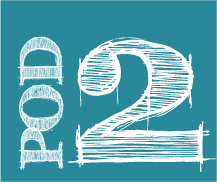 Understanding how information is organized (whether in a database, library, or on the open Web) can be extremely helpful in finding the right resources for any research project. With the amount of information available to us today in both print and digital formats, knowing how to find the most useful/accurate information to be able to answer research questions can save students a lot of time and frustration. This pod includes activities that teach tweens/teens how to select effective search terms as well as how search engines, like Google, work behind the scenes to help students find the information they are looking for. Continue reading
Understanding how information is organized (whether in a database, library, or on the open Web) can be extremely helpful in finding the right resources for any research project. With the amount of information available to us today in both print and digital formats, knowing how to find the most useful/accurate information to be able to answer research questions can save students a lot of time and frustration. This pod includes activities that teach tweens/teens how to select effective search terms as well as how search engines, like Google, work behind the scenes to help students find the information they are looking for. Continue reading
Deciphering Search Engine Results (Search Strategies)
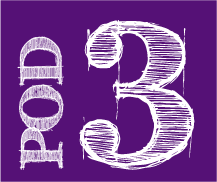 Your students have created their research questions, typed their search terms in a search engine (i.e. Google) and are ready to get to the meat of the research process – finding and gathering information. How do students know what websites to visit from the millions and millions of search results returned? This pod’s activities explain the information that is found on a search engine results page so that students can make smart and thoughtful choices on which websites would be best to use for their research. Continue reading
Your students have created their research questions, typed their search terms in a search engine (i.e. Google) and are ready to get to the meat of the research process – finding and gathering information. How do students know what websites to visit from the millions and millions of search results returned? This pod’s activities explain the information that is found on a search engine results page so that students can make smart and thoughtful choices on which websites would be best to use for their research. Continue reading
Introduction to Relevance and Credibility
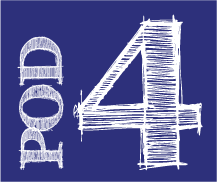 Identifying health resources that are both trustworthy and relevant is difficult, particularly for tweens who may lack life experience and knowledge of heath terms. This pod not only defines the concept of trustworthiness and relevance, the activities within aim to help young people to learn the elements of resources to look for when searching on their own. Continue reading
Identifying health resources that are both trustworthy and relevant is difficult, particularly for tweens who may lack life experience and knowledge of heath terms. This pod not only defines the concept of trustworthiness and relevance, the activities within aim to help young people to learn the elements of resources to look for when searching on their own. Continue reading
Copyright & Citations
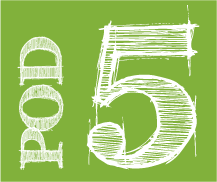 With the affordances new technologies have given us to share, copy, and edit information, it is important for tweens/teens to understand the ethical implications of doing research and using information from others. Young adults should not only know how to use information for their own understanding and knowledge of the world, but how to use that information in responsible and moral ways. The activities in this pod focus on copyright laws (why they exist) and how students can safely and legally use the information they find for their own research projects. Continue reading
With the affordances new technologies have given us to share, copy, and edit information, it is important for tweens/teens to understand the ethical implications of doing research and using information from others. Young adults should not only know how to use information for their own understanding and knowledge of the world, but how to use that information in responsible and moral ways. The activities in this pod focus on copyright laws (why they exist) and how students can safely and legally use the information they find for their own research projects. Continue reading
Organizing Research / Understanding Nutrition Labels and Bar Charts
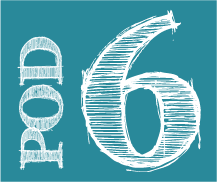 With the vast amount of information sources available, helping students to organize their research is not as easy as helping them make notecards or binders of information. This pod includes activities to teach students how to take good notes and how to save resources they find on the Internet. The pod also includes lessons focused on visual and numerical literacy, helping students to read charts and labels accurately. Continue reading
With the vast amount of information sources available, helping students to organize their research is not as easy as helping them make notecards or binders of information. This pod includes activities to teach students how to take good notes and how to save resources they find on the Internet. The pod also includes lessons focused on visual and numerical literacy, helping students to read charts and labels accurately. Continue reading
Final Project Creation
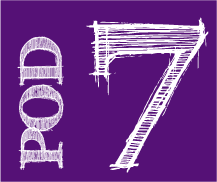 In this pod, students will learn how to take the notes and information they’ve learned and organized and put it all together in a presentation. They will learn to consider audience and presentation style as a means of expressing their ideas. Students will also be introduced to a number of Web 2.0 presentation tools, giving them and you a break from the more traditional slide shows and posters. Continue reading
In this pod, students will learn how to take the notes and information they’ve learned and organized and put it all together in a presentation. They will learn to consider audience and presentation style as a means of expressing their ideas. Students will also be introduced to a number of Web 2.0 presentation tools, giving them and you a break from the more traditional slide shows and posters. Continue reading
Final Project Presentations
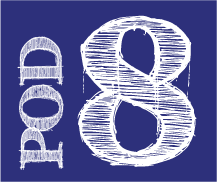 Even adults with plenty of experience dislike public speaking; we can hardly expect our students to feel differently. This pod contains many ideas for helping students to improve their public speaking skills. The activities within would work very well spread out into different sessions, as this would give students plenty of time to practice and prepare before their final project. Continue reading
Even adults with plenty of experience dislike public speaking; we can hardly expect our students to feel differently. This pod contains many ideas for helping students to improve their public speaking skills. The activities within would work very well spread out into different sessions, as this would give students plenty of time to practice and prepare before their final project. Continue reading
HackHealth: Engaging Tweens in Seeking and Utilizing Health Information
HackHealth: Engaging tweens in seeking and utilizing health information. Research poster to be presented at the American Library Association Annual Conference, Las Vegas, NV, June 26 – July 1, 2014.
Abstract: The American Medical Association (2007) reports that “literacy is a stronger predictor of an individual’s health status than income, employment status, education level, and racial or ethnic group” (p. 13). Aiming to help improve the health literacy of disadvantaged tweens and reduce health disparities, researchers at the University of Maryland collaborated with three Title 1 middle school librarians to co-design HackHealth, a program funded by the National Library of Medicine. Participating tweens improve their health literacy skills by looking for and evaluating online health-related information so they can use this knowledge to make smart and healthy life choices. In addition to learning about a specific health topic of their own choosing, students learn about different aspects of digital literacy, such as identifying keywords, refining search terms, analyzing/interpreting search engine results, and evaluating the relevance and credibility of websites. Students create final projects of their research using a medium of their choice to present their findings to their families and each other. At the end of the program at each school, feedback about the program is gathered through follow-up interviews with the students as well as focus groups with the students and their parents. Additionally, a pre-program survey and post-program survey are administered in each school to gauge changes in the students’ perceptions regarding their interest in health, their health literacy, and their health-related self-efficacy. Photographs, student and parent quotes, and sample final projects will be used to showcase the impact HackHealth has had on participating students’ health and digital literacies.
From eye rolls to “I can!” — Understanding the health literacy of disadvantaged teens
From eye rolls to “I can!” – Understanding the health literacy of disadvantaged tweens. Poster presented at the Public Health Research@Maryland on April 8, 2014 in College Park, MD.
